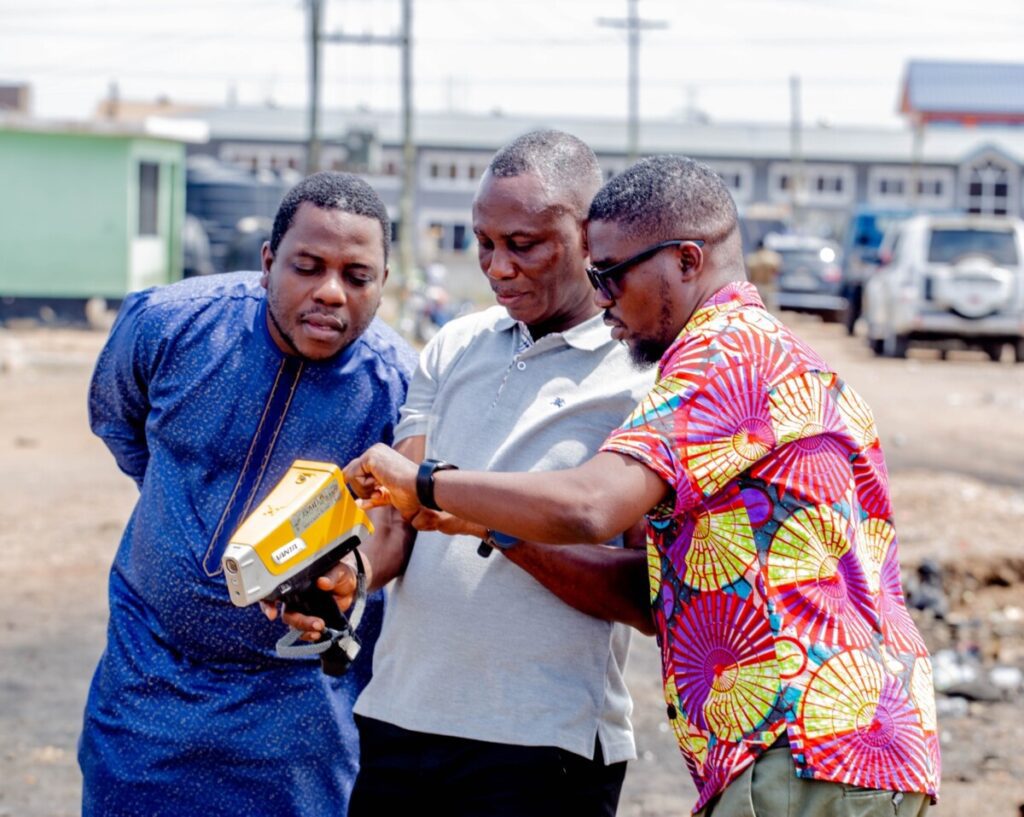Esmond Quansah, Pure Earth Ghana’s Country Director, highlights the pollution problems facing his country, and how his team is working to fix it.
Learn more about our work in Ghana and follow Pure Earth Ghana on social media: IG, twitter, Facebook, LinkedIn.

In 1957, Ghana became the first black African Nation to gain independence from European colonization. According to Ghana’s 2020 Census, the population is estimated to be 31,072,940 people. Ghana has made progress economically over recent decades; however, its sustained growth is threatened by natural resource and environmental degradation. Ghana faces big challenges with pollution.
In 2019, 14% of Ghana’s total land area experienced degradation. That is why I believe that Pure Earth’s work in Ghana is so important, and I am proud that Ghana will be the flagship country in Africa for Pure Earth’s work in reducing lead poisoning and pollution.

“The Human Rights Guy”
I grew up in a small village called Nanankor in the Buem district of Volta Region, now Oti region of Ghana, with my grandparents, who were peasant farmers.
In the early 1980s, there was so much hunger, poverty, disease, and injustice in society. I lost a younger brother, who I thought was healthy in the evening, but died the next day. I felt so much pain and it took me weeks to recover. These experiences shaped my thinking. I felt I should do something to make the world a better place. I was determined to advocate for a better health system, and to try to solve hunger and poverty when I grew up. I was passionate about social issues that no one cared about. I was the “human rights guy.”
In Ghana, Africa, and the world at large, women still face discrimination, gender inequalities and barriers to meaningful work. Yet we know that when women are given the opportunity to thrive, communities and families benefit.
Before I joined Pure Earth, I had the opportunity to work on a project that supported young women and girls to realize sustainable livelihoods through social entrepreneurship with a focus on addressing environmental and climate issues. The focus on young women starting businesses that provide solutions to environmental issues really interested me.
At Pure Earth, I look forward to supporting women working hard to protect their communities from pollution. Pure Earth experts have found that when women are educated about the dangers of toxic lead and mercury, they become fierce advocates and the best drivers of positive, lasting change. I am thrilled that Pure Earth always ensures the participation of women in projects.
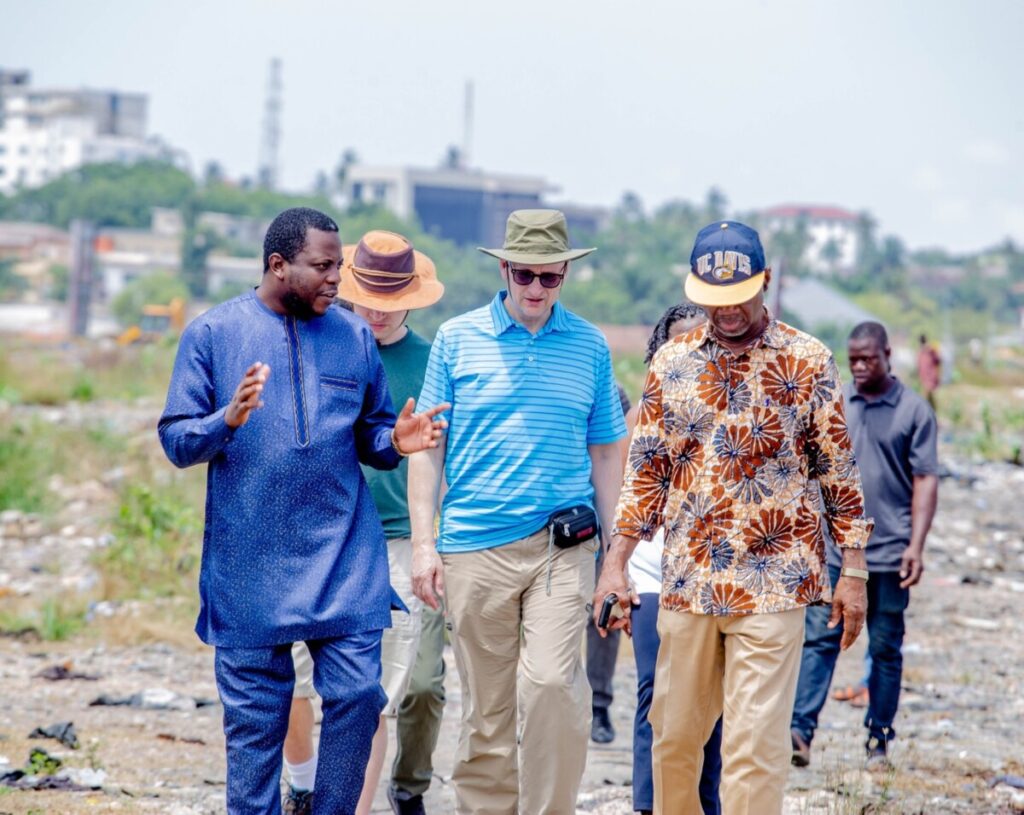
Vision For Pure Earth Ghana
My focus with Pure Earth Ghana is to drive the implementation of the strategic plan to engage the government, private sector, and civil society to address and solve lead and mercury pollution, and influence policies at the governmental level to ensure the reduction of pollution so that lives are saved, and the planet is protected. My proudest achievement is to see people smile when their lives are impacted through key interventions.
Since I became the Ghana team lead at Pure Earth, we have completed the registration of the country office, constituted its executive council, and launched vibrant communications channels on both new and traditional media to help tell the story of all the work we have done, and continue to do to help Ghana address lead and mercury poisoning.
In the coming weeks, we are hosting a data clinic to discuss and communicate the results of blood lead level surveys and home-based assessments, which would be a huge achievement in our work to understand lead levels among children in Ghana.
We are also embarking on a major cleanup of one of the most lead-poisoned sites in Ghana in Breman.
Together with my team–Wilson Baku, Miriam Amuntamekeh Vox-Afful and Blessing Enyonam Gbadago, we are poised to make a great difference for ourselves and for our dear country.
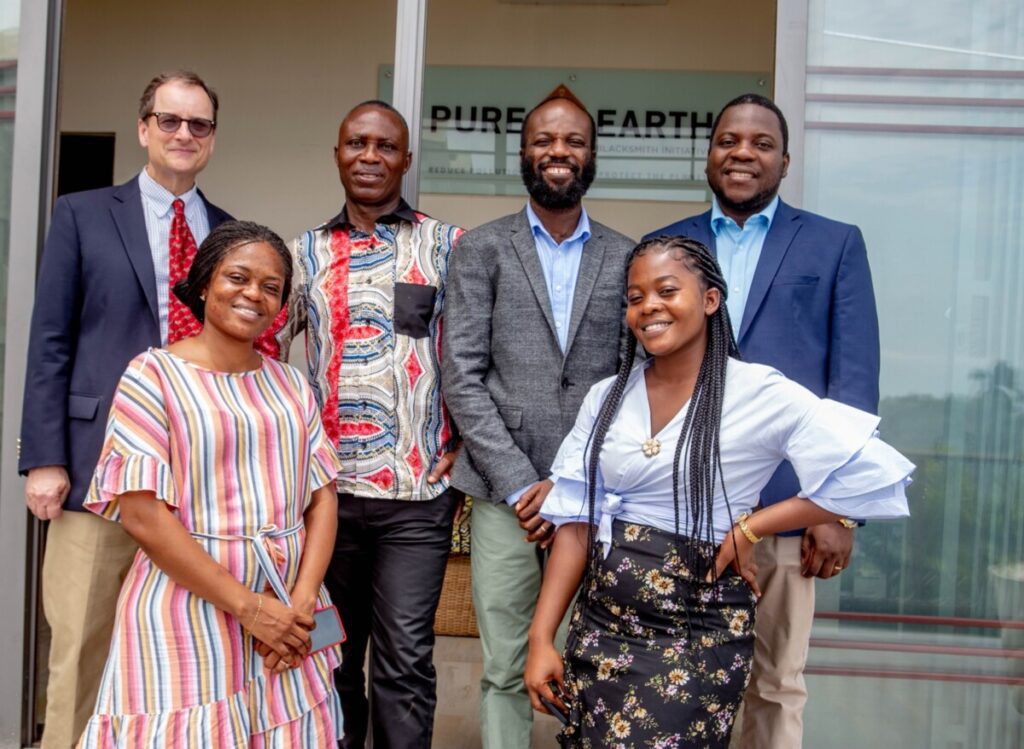
Projects Under Implementation In Ghana
Engaging Students
Pure Earth Ghana continues to engage school students to raise awareness about pollution and solutions, and encourage the next generation of concerned citizens. This year, a meeting was held with school pupils of one of the largest senior high schools in Ghana–Labone SHS–to mark Earth Day around the theme “Invest in our Planet.” The event, which attracted more than 200 students and staff, presented Pure Earth Ghana staff with the opportunity to explain the work that we do around lead and mercury poisoning. We spent the day engaging the student community on the need to protect the environment and to call on the government to invest in policies and programmes that help protect our environment. Five national news outlets covered the event.
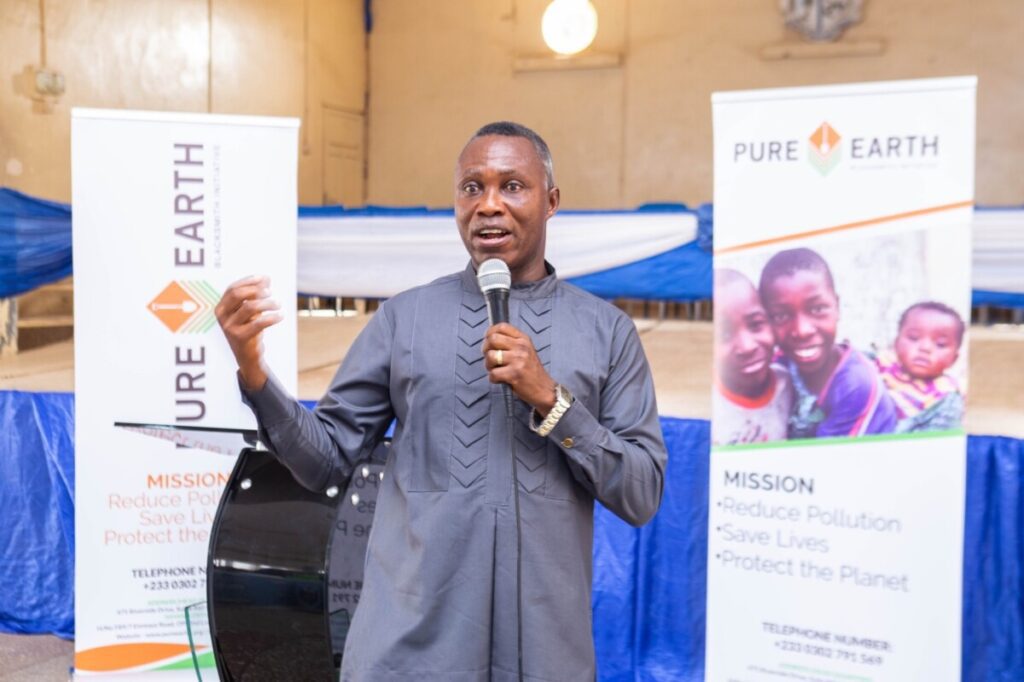
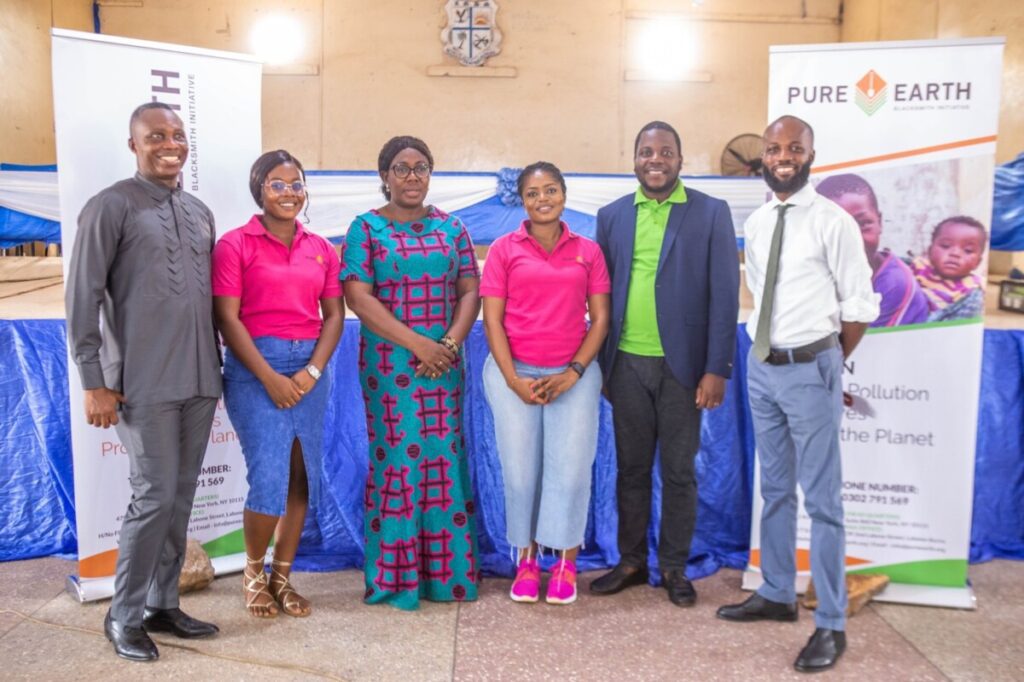
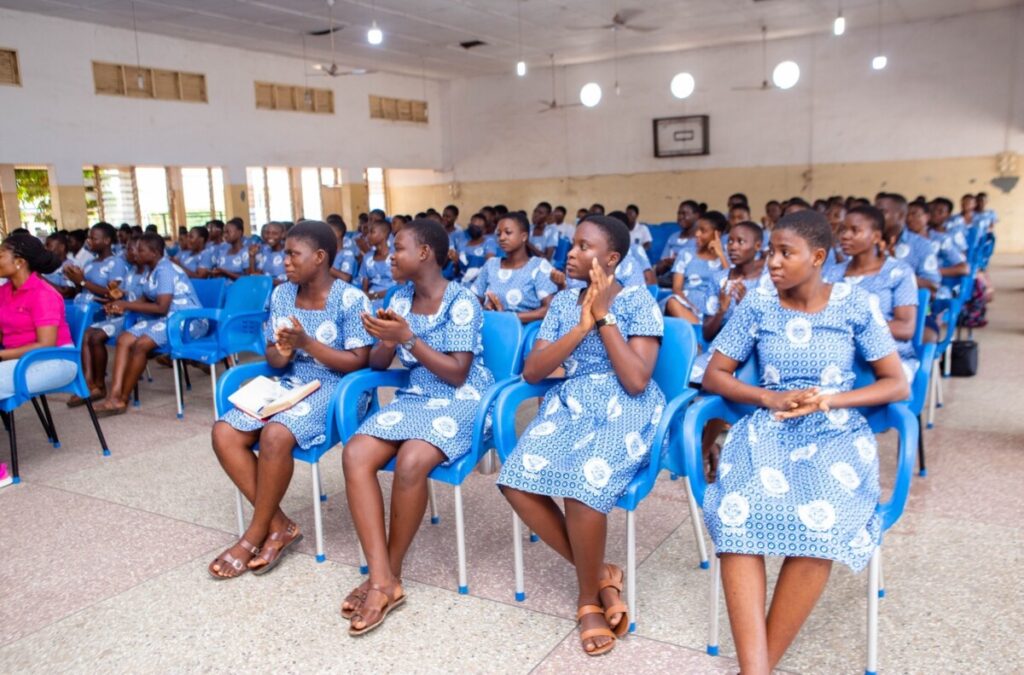
Protecting Every Child’s Potential (PECP)
Ghana continues to work on the initiative, launched in 2020, when Pure Earth, UNICEF, and the Clarios Foundation partnered to form Protecting Every Child’s Potential. PECP supports large-scale efforts to reduce lead poisoning in seven countries, including Bangladesh, Georgia, Ghana, India, Indonesia, Mexico, and the Philippines.
Rapid Market Screenings (RMS)
The Rapid Market Screening (RMS) program aims to enhance our collective understanding of consumer products and foods that contribute to lead poisoning in low- and middle-income countries such as Ghana. RMS investigators were deployed to cities such as Accra, Kumasi, Tamale, and Takoradi. They collected thousands of samples of products and food from markets across Ghana. These samples are being analyzed to determine lead concentrations. Pure Earth Ghana will be releasing a report on this project soon. RMS is being conducted in 25 countries.
Ghana Mapping Project
This project seeks to comprehensively map out toxic sites within 10 districts in Ghana. There are currently 217 toxic sites in Pure Earth’s Toxic Sites Identification Program (TSIP) database.
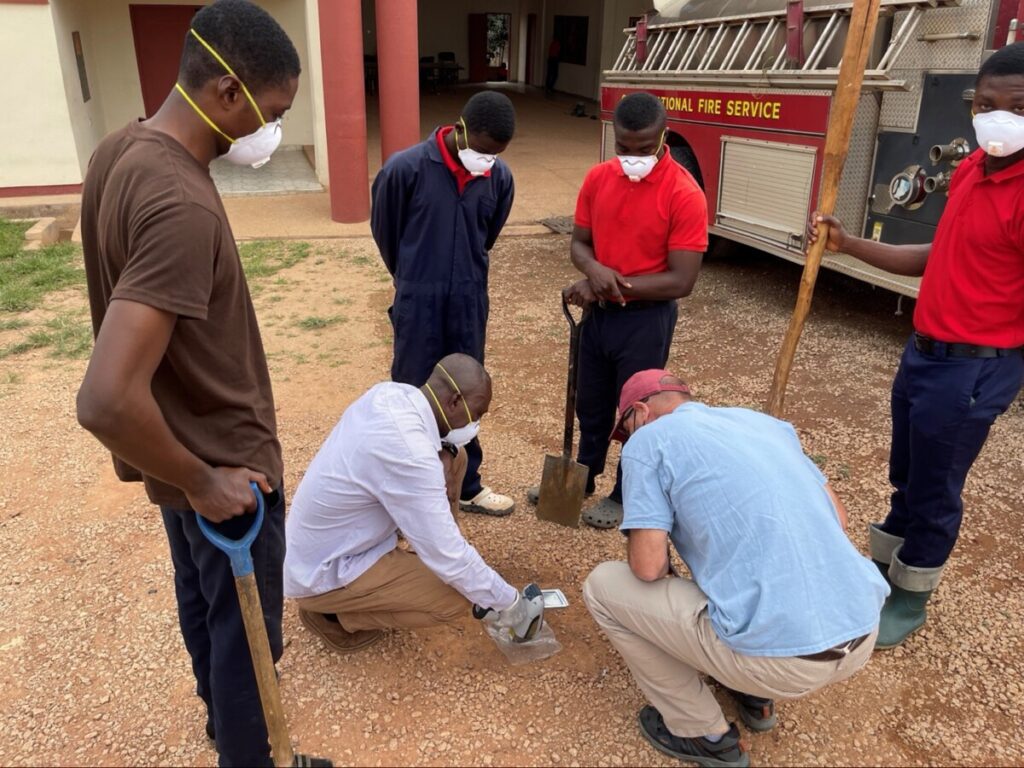
Health and Pollution Action Plan
Pure Earth has initiated a Health and Pollution Action Plan (HPAP) with the government of Ghana. An inception meeting was held, and priorities were discussed in 2018. This HPAP work follows the completion of a Pure Earth mapping project and an e-waste project in Ghana.
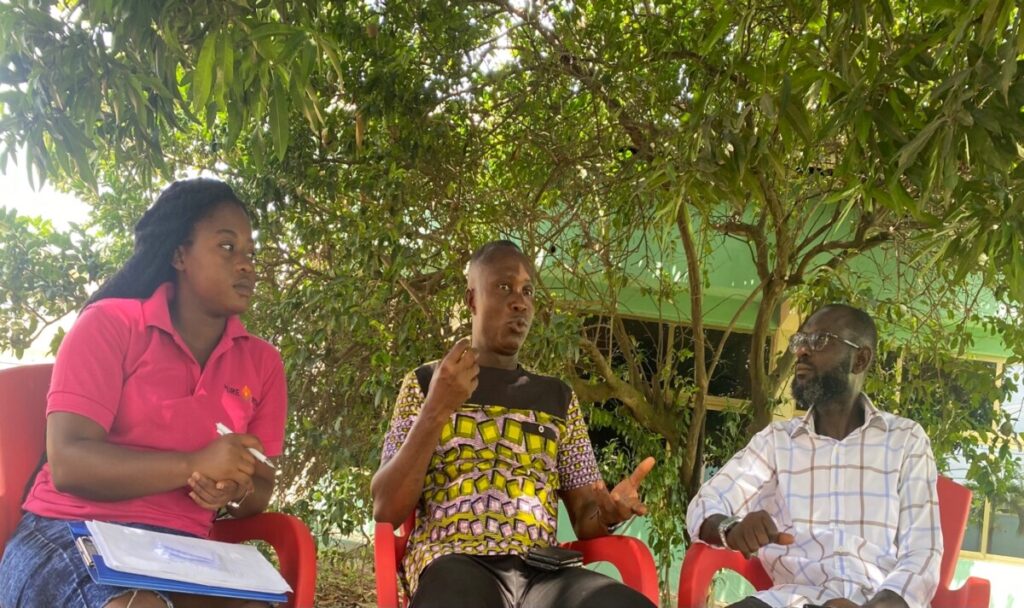
E-Waste Recycling
Pure Earth (Blacksmith Institute) and Green Advocacy Ghana began a pilot project by setting up a basic e-waste recycling facility that would enable recyclers to stop burning wire and instead strip it in a way that was efficient and profitable. Pure Earth opened the E-waste Recycling Center with automated wire-stripping units in 2015. Funding for the pilot project came from the United Nations Industrial Development Organization (UNIDO), through the Global Alliance for Health and Pollution (GAHP). Pure Earth continues to follow the site’s progress.
